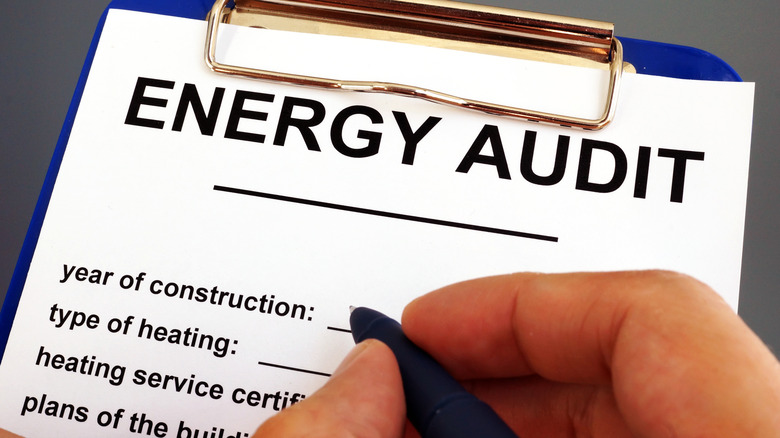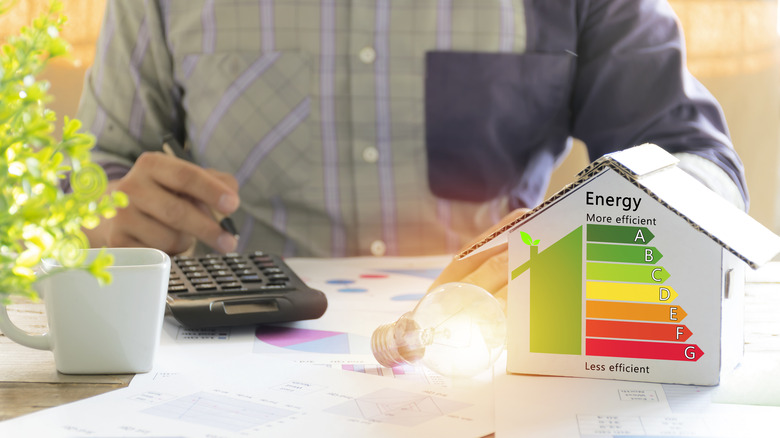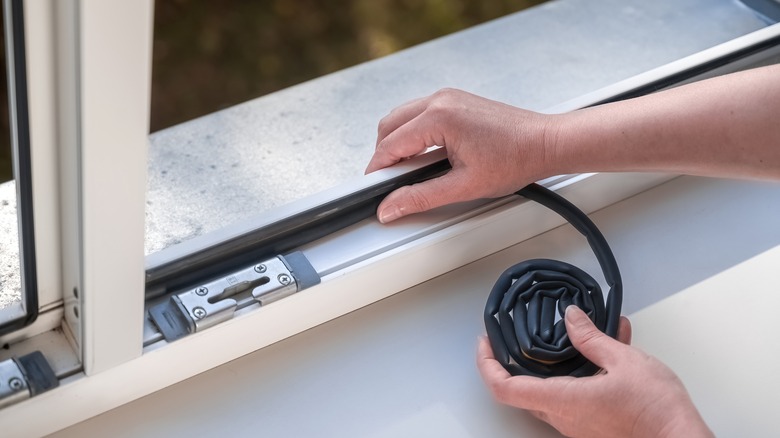How A Home Energy Audit Can Save You Money As A Homeowner
As a homeowner, you're faced with countless bills to pay each month, such as the mortgage, property taxes, and utilities. Many of us tend to do our best to keep our utility costs low by taking shorter showers, turning down the heat, and keeping the lights off. This is because the average monthly cost of electricity alone in the U.S. is about $117, per Move.org. Compared to water and natural gas costs, it's significantly higher. This paired with high inflation can make any homeowner feel overwhelmed as they try to budget each month and pay their bills on time.
However, what if we told you there's a way you can save a significant amount of money on your energy bills by conducting an energy audit? If this intrigues you or is something you've heard of before but were wary of, we'll reveal the process of an energy audit, the steps taken after, and exactly how much money it can save you.
The process of an energy audit
According to Just Energy, an energy audit is conducted by an energy advisor or energy auditor who collects information used to display your electrical usage. Homeowners can use this information to figure out which part of their electricity consumption is costing them the most money, and then create a plan to fix it. Professionals, such as renewable energy expert of Solar Panels Network USA Alan Duncan, agree this is something homeowners should look into (via Realtor). "Getting a home energy audit can help you identify energy efficiency upgrades you can make in your home," Duncan explained. "This can save you money on your energy bill in the long run."
In fact, homeowners can expect to save 5 to 30% on their monthly bills after completing the upgrades suggested by their energy audit. Not only will this save you money, but Just Energy says an audit can also increase your home's resale value and decrease your carbon footprint.
Different types of upgrades
After you've conducted an energy audit, it may be time to install some upgrades to ensure optimal electrical use. According to One Hour Heating & Air Conditioning, a pesky draft may be the culprit of wasted energy in your home. Therefore, your home upgrade may be as simple as sealing your windows and doors to prevent air from escaping or entering. Insulation is also an important installation to pair with sealing, and it will help keep your home at a comfortable temperature all year long.
The Office of Energy Efficiency and Renewable Energy says introducing storm windows can also improve your energy usage because they are built to block out cold air and limit heat loss by 25 to 50%. Some people also install programmable thermostats because they can save homeowners up to 10% on their heating and cooling bills due to their ability to adjust a property's temperature at any time of the day.


